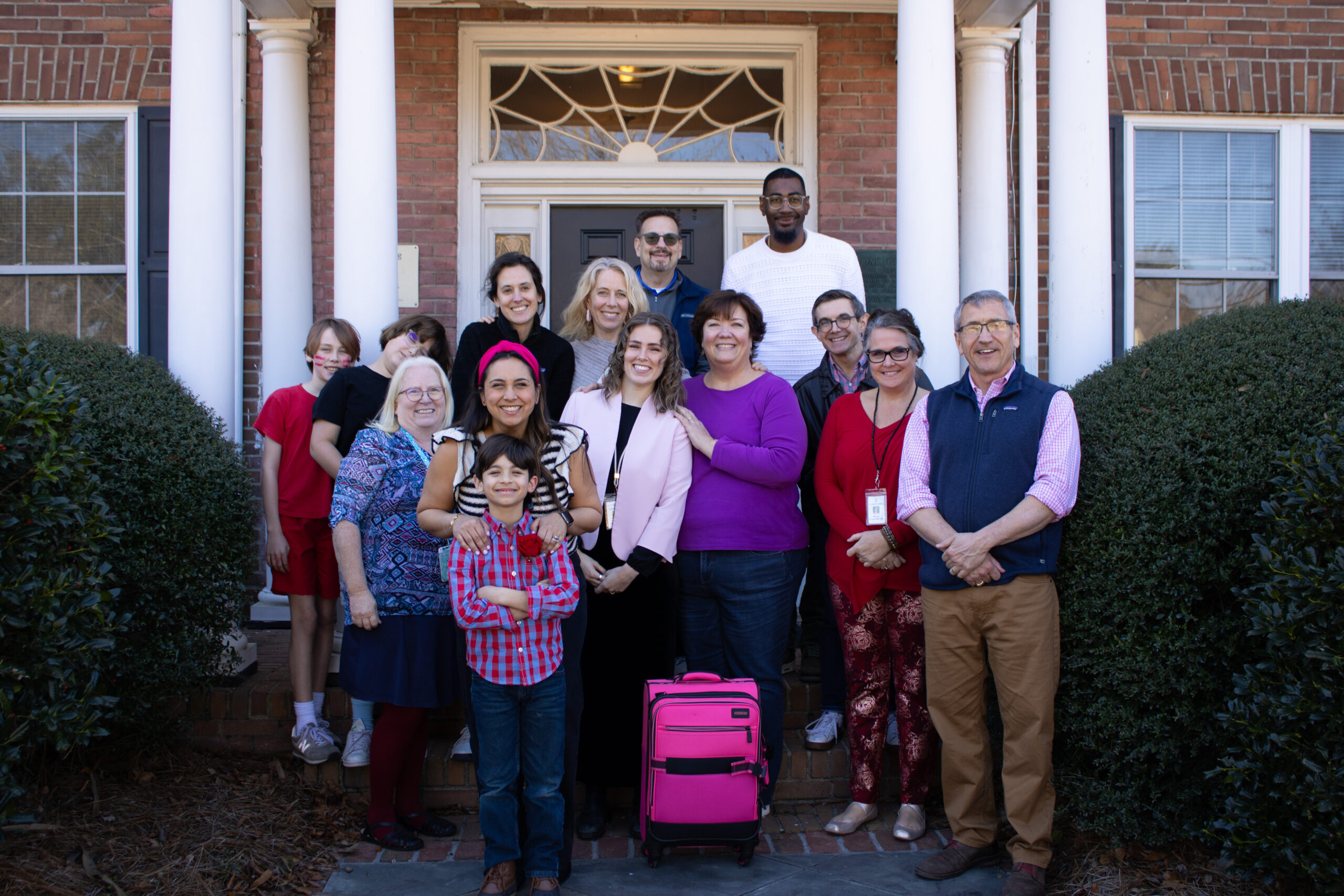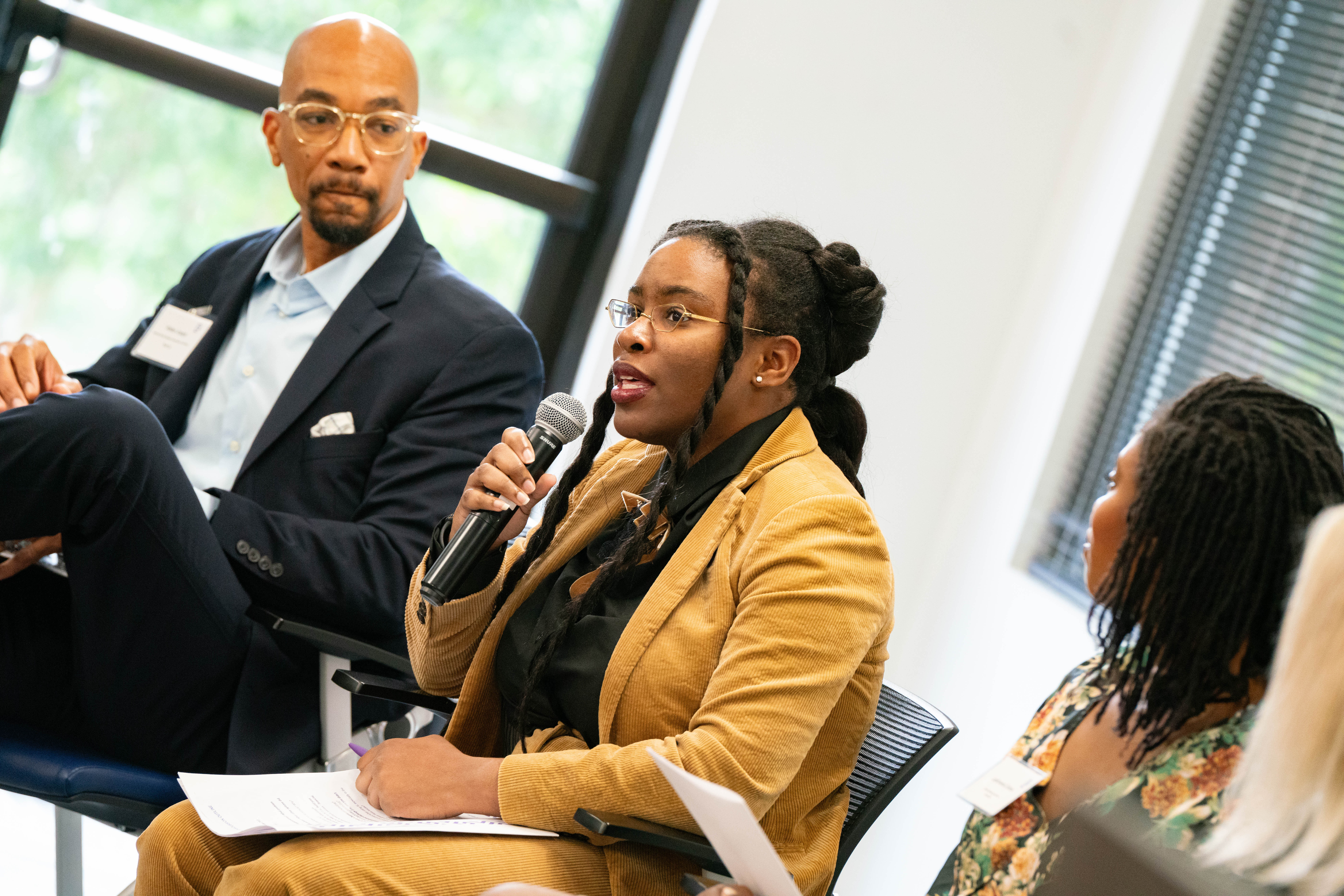Navigating the foster care system can be daunting for both youths and the foster family that welcomes them into their home. This journey can be filled with uncertainty. However, it is also one rich with opportunities for safety, growth, support and connection. By providing an understanding of the foster care system in South Carolina, Landmarks for Families seeks to empower and promote positive outcomes for all those who enter it.
Understanding the Foster Care System
Foster care is designed to provide temporary care and support to children and adolescents who are unable to live with their biological families for a variety of reasons.
Foster parents play a crucial role in providing a stable and nurturing environment for these youth while they await reunification with their families or alternative permanency arrangements. Foster care placement lengths vary from case to case, with services protecting children from birth to 18 years old.
To learn more about the Foster parent experience, visit the South Carolina Department of Social Services’ (DSS) FAQs page.
How the Foster Care System Works
This branching network of professionals and caregivers is dedicated to the safety, well-being and stability of these young people, and foster parents serve as the beating heart of it all.
Referral and Placement
The journey typically begins with a referral to the child welfare agency, often prompted by concerns of abuse, neglect or parental inability to provide care. Caseworkers conduct investigations based on these claims to assess the child’s safety and determine the most appropriate course of action.
If removal from the home is deemed necessary, the child may be placed in temporary foster care while efforts are made to address the underlying issues and work toward reunification with the biological family.
Alternatively, if reunification is not possible, efforts may be made to find a permanent placement, such as adoption or guardianship. For example, South Carolina is a “Kin First State” meaning that, in these situations, agencies prioritize placements with a kin/fictive caregiver before considering foster care.
Case Management and Support
Once placed in foster care, youth are assigned a caseworker who serves as their primary point of contact. These workers act as champions for the child’s best interest within the child welfare system. Caseworkers conduct regular assessments, develop case plans and coordinate services to address the unique needs of each child and family.
Support services may include access to medical and mental health care, educational resources, counseling, mentoring and recreational activities. Caseworkers work closely with foster parents, biological parents, service providers and community partners to ensure that the child’s needs are met and progress is made toward achieving permanent stability.
Court Involvement and Permanency Planning
Court oversight is a critical component of the foster care system, with judges responsible for reviewing case plans, monitoring progress and making decisions regarding the child’s placement and permanency. Court hearings are held at regular intervals to assess the child’s safety, well-being and progress toward achieving goals.
Permanency planning involves identifying and pursuing the most appropriate permanency option for each child, whether it’s reunification with the biological family, adoption, guardianship or another permanent placement. Caseworkers, attorneys and other professionals collaborate to develop and implement permanency plans that prioritize the child’s best interests and long-term stability.
Transitioning to Adulthood
For youth aging out of foster care, the transition to adulthood can be a challenging and uncertain time. Transition planning begins well in advance of aging out, with a focus on developing essential life skills, accessing education and vocational training, securing stable housing, and building a supportive network of mentors and resources.
Transition services may include life skills training, financial literacy education, employment assistance, housing support, healthcare navigation and access to educational opportunities. By providing comprehensive support and guidance, the foster care system strives to empower youth to achieve independence and success as they transition to adulthood.
Tips for Foster Parents and Youth
Although this time may seem challenging, know that hope and support are near. Together, whether you are a parent, professional or youth, we can make a positive difference in each other’s lives to build a brighter future for all in the foster system. These quick tips can help both foster parents and youth find success throughout the process.
For Foster Parents:
- Take the time to learn about the foster care system. Understanding youths’ challenges can better equip you to provide effective support and care.
- Work to build trust with foster youth. Be patient, consistent and empathetic, and prioritize open communication to foster a sense of safety and belonging.
- Advocate for your foster youth, and collaborate with caseworkers, educators and other professionals to ensure they receive the support they need.
- Establish routines, set clear expectations and provide a sense of security to create a stable and structured home environment.
- Remember your own wellness. Take time for self-care activities, seek support from other foster parents or support groups, and know when to ask for help.
For Foster Youth:
- Communicate your needs, concerns and feelings to your foster parents, caseworkers or other trusted adults. Your voice matters, and advocating for yourself can help ensure that your needs are met.
- Maintain connections with supportive adults, friends and family members. These relationships can provide valuable emotional support and stability during challenging times.
- Explore available resources and opportunities for extracurricular activities and personal development. Seize opportunities that can help you achieve your goals.
- Stay focused on your long-term goals and aspirations. Invest in your education, explore career options and envision a bright future for yourself beyond foster care.
- If you’re struggling, don’t hesitate to seek support. You are not alone, and there are people who care about your well-being and are ready to help.
Through collaboration and compassion, we can all work toward a future where every child has the opportunity to thrive and fulfill their potential.
Find Your Way Home at Landmarks for Families
With more than 230 years of experience supporting South Carolina’s children and families, Landmarks for Families is equipped to lead your child or family through life’s challenges. Whether on-site or in-home, our compassionate team is ready to meet you where you are with the services you need. Contact us today to learn more about our programs and speak with a member of our team.


